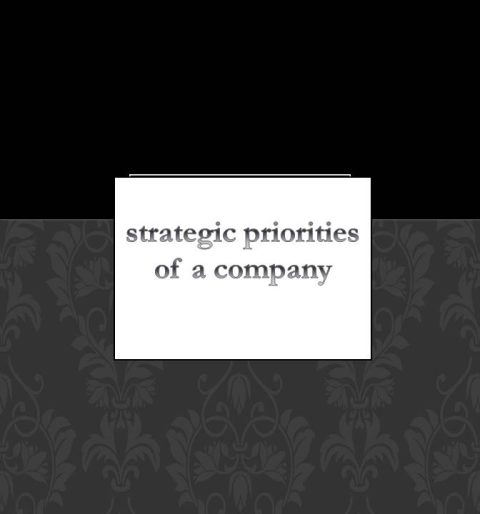Introduction:
Starting a small business often requires more than just a great idea and a solid business plan. One of the biggest hurdles entrepreneur’s faces is securing the necessary funds to turn their vision into reality. However, what if I told you that there are opportunities to obtain free money to kickstart your business journey? Yes, you read that the right free money to start a small business is indeed a possibility. In this article, we’ll explore various avenues where you can find free money and grants to fuel your entrepreneurial dreams.
Free money to start a small business:
Learn how to obtain free money to start a small business through grants, scholarships, and specialized funding programs tailored for aspiring entrepreneurs. Explore various avenues to secure financial support and kickstart your entrepreneurial journey today.
1- Understanding Small Business Grants
Before delving into where to find free money, let’s first understand what small business grants entail. Unlike loans that require repayment with interest, grants are essentially free money awarded to businesses for specific purposes. These purposes could range from research and development to community initiatives.
– Advantages of Grants over Loans
The appeal of grants stems from their non-repayable nature, offering free money to start a small business. In contrast to loans that saddle new ventures with debt, grants provide a financial lift without the pressure of repayment. Moreover, grants typically offer greater flexibility, giving entrepreneurs more autonomy in using the funds.
2- Government Grants
– Federal Grants for Small Businesses
The federal government offers various grant programs specifically designed to support small businesses. These grants, administered by agencies such as the Small Business Administration (SBA), provide funding for initiatives ranging from technological innovation to environmental sustainability. However, securing federal grants often requires meeting stringent criteria and eligibility requirements.
– State and Local Government Grants
Entrepreneurs seeking free money to start a small business should not overlook the opportunities provided by state and local governments. In addition to federal grants, many states and local governments offer their own grant programs specifically tailored to support small businesses within their jurisdictions. These grants are often designed to address local economic needs or target specific industries. To access these funds, entrepreneurs should thoroughly research the offerings available in their area and explore how they can leverage state and local resources to secure the necessary funding for their ventures.
3- Nonprofit Organizations
Nonprofit organizations also play a significant role in providing free money to small businesses. Many nonprofits offer grant programs focused on industries or social causes. By aligning your business objectives with the mission of relevant nonprofits, you may increase your chances of securing grant funding.
– Grants Offered by Nonprofit Organizations
Organizations such as the Bill & Melinda Gates Foundation and the Ford Foundation provide grants to businesses working towards social and environmental objectives. These grants not only offer financial support but also the opportunity to make a positive impact on society.
4- Corporate Grants
Corporate entities often allocate funds towards corporate social responsibility initiatives, including small business grants. By partnering with corporations aligned with your business values, you may gain access to grant opportunities and additional resources.
– Corporate Social Responsibility Initiatives
Companies like Google and Microsoft frequently offer grants and support programs for startups and small businesses. These initiatives not only provide financial assistance but also access to mentorship and networking opportunities within the corporate ecosystem.
5- Crowdfunding
Crowdfunding has emerged as a popular avenue for entrepreneurs seeking free money to start their businesses. Platforms like Kickstarter and Indiegogo allow individuals to raise funds for their projects by soliciting contributions from a large number of people.
– Utilizing Crowdfunding Platforms for Free Money
To succeed in crowdfunding, entrepreneurs must craft compelling campaigns that resonate with potential backers. This involves clearly communicating your business idea, value proposition, and the impact you aim to make. By leveraging social media and networking, you can maximize visibility and attract supporters to fund your venture.
6- Angel Investors
Angel investors are affluent individuals who provide capital to startups in exchange for ownership equity or convertible debt. While not technically free money, angel investments offer entrepreneurs an alternative to traditional funding sources.
– Exploring Angel Investor Opportunities
Building relationships with angel investors requires a combination of networking, pitching, and demonstrating potential for growth. By presenting a well-defined business model and showcasing your team’s capabilities, you may secure investment from angels interested in supporting promising ventures.
7- Business Incubators and Accelerators
Business incubators and accelerators offer programs designed to nurture and support early-stage startups. In addition to mentorship and guidance, these programs may provide funding in the form of grants or seed investment.
– Programs Offered by Incubators and Accelerators
Entities like Y Combinator and Techstars run renowned accelerator programs that provide funding, mentorship, and access to a vast network of entrepreneurs and investors. Participating in such programs can significantly enhance a startup’s chances of success.
8- Chambers of Commerce
Local chambers of commerce are valuable resources for small businesses seeking free money and support. These organizations often provide access to funding opportunities, networking events, and business resources tailored to the needs of entrepreneurs in their communities.
– Support Offered by Local Chambers of Commerce
Chambers of commerce advocate for the interests of small businesses and can help connect entrepreneurs with relevant funding sources. By actively engaging with your local chamber, you can tap into a wealth of resources and opportunities to fuel your business growth.
9- Minority and Women-Owned Business Grants
Specific grant programs are available to support minority and women-owned businesses, addressing the unique challenges and barriers faced by these entrepreneurs.
– Specific Grants Available for Minority and Women-Owned Businesses
Organizations like the Minority Business Development Agency (MBDA) and the National Association of Women Business Owners (NAWBO) provide grants and resources specifically designed for minority and women entrepreneurs. Utilizing these programs enables you to tap into free money to start a small business and nurture its growth.
10- Online Resources and Databases
Numerous online platforms provide comprehensive databases of grants and funding opportunities for small businesses. These resources serve as valuable tools for entrepreneurs seeking free money to support their ventures.
– Platforms for Finding Grants and Funding Opportunities
Websites like Grants.gov and Foundation Directory Online offer searchable databases of grant opportunities from government agencies, foundations, and corporate entities. By utilizing these platforms and conducting thorough research, you can identify potential funding sources aligned with your business objectives.
11- Tips for Applying for Free Money
Securing free money through grants requires a strategic approach to the application process. By following these tips, you can increase your chances of success.
-
Strategies for a Successful Grant Application
– Thoroughly research grant opportunities: Understand the eligibility criteria and requirements of each grant program before applying.
– Craft a compelling business plan: Clearly articulate your business idea, target market, and growth strategy to demonstrate viability and potential impact.
– Follow application instructions: Pay close attention to the guidelines and requirements outlined by grant providers, ensuring your application meets all criteria.
– Highlight your unique value proposition: Emphasize what sets your business apart and why it deserves funding over competing applicants.
– Seek feedback and iterate: Solicit feedback on your application from mentors, advisors, or peers, and be willing to revise strengthen your proposal.
12- Common Mistakes to Avoid
While pursuing free money for your small business, be mindful of common pitfalls that can hinder your chances of success.
-
Pitfalls to Watch Out for When Seeking Free Money
– Lack of thorough research: Failing to explore all available funding options and overlooking potential sources of free money.
– Incomplete or poorly written applications: Submitting rushed or inadequately prepared grant applications that fail to effectively convey your business concept and objectives.
– Ignoring feedback or advice: Disregarding constructive criticism or failing to adapt your approach based on feedback from mentors, reviewers, or peers.
– Overlooking eligibility criteria: Applying for grants for which your business does not meet the specified eligibility requirements, resulting in wasted time and effort.
– Underestimating the competition: Underestimating the competitiveness of grant programs and failing to differentiate your business effectively from other applicants.
13-23 Small Business Grants You Can Apply For in 2024
- Small Business Innovation Research (SBIR) Program
- Rural Business Development Grants
- Minority Business Development Agency (MBDA) Grants
- National Association for the Self-Employed (NASE) Growth Grants
- FedEx Small Business Grant Contest
- Visa Everywhere Initiative
- Girlboss Foundation Grant
- Cartier Women’s Initiative
- National Science Foundation (NSF) Small Business Innovation Research (SBIR) Program
- Grants.gov
- USDA Rural Energy for America Program (REAP) Grants
- Amber Grant Foundation
- Minority Business Development Agency (MBDA) Business Center Grants
- Small Business Technology Transfer (STTR) Program
- Department of Commerce Grants
- Walmart Foundation Community Grants
- Economic Development Administration (EDA) Grants
- Business USA Financing Tool
- National Endowment for the Humanities (NEH) Grants
- SBA Microloan Program
- Target Foundation Grants
- Patagonia Environmental Grants
- National Institutes of Health (NIH) Small Business Innovation Research (SBIR) Program
Conclusion:
In conclusion, securing free money to start a small business is indeed possible, thanks to the various grant programs, investor networks, and support organizations available to entrepreneurs. By exploring the diverse range of funding sources outlined in this article and applying strategic approaches to securing funding, you can overcome financial barriers and bring your business ideas to life. Remember, perseverance, strategic planning, and leveraging available resources are key to obtaining the free money you need to succeed as a small business owner.
FAQ:
1- What is the most common grant?
The most common grant for small businesses is the Small Business Innovation Research (SBIR) program, which provides funding for research and development projects with the potential for commercialization.
2- Is the Amber grant a real thing?
Yes, the Amber Grant is a real grant program offered by the Women Net organization. It provides funding to women-owned businesses to help them start or grow their ventures.
3- How do I write a grant proposal for a small business?
To write a grant proposal for a small business, start by thoroughly researching the grant opportunity and understanding its requirements. Then, craft a compelling proposal that clearly outlines your business idea, objectives, and how the grant funds will be used. Be sure to address all criteria specified in the grant application and provide supporting evidence of your business’s potential for success. Consider seeking assistance from resources like the Small Business Administration (SBA) or local Small Business Development Centers (SBDCs) for guidance on writing effective grant proposals.







[…] profit from the internet without capital […]
[…] today’s digital age, the allure of free cash earning websites has transformed the landscape of online income generation. These platforms offer […]
[…] -How To Make $100 A Day and Real Ways to Make Extra Money […]
[…] 1- 10 Legit Ways to Get Free Money […]
[…] how to make money from my computer: […]
[…] on Business […]